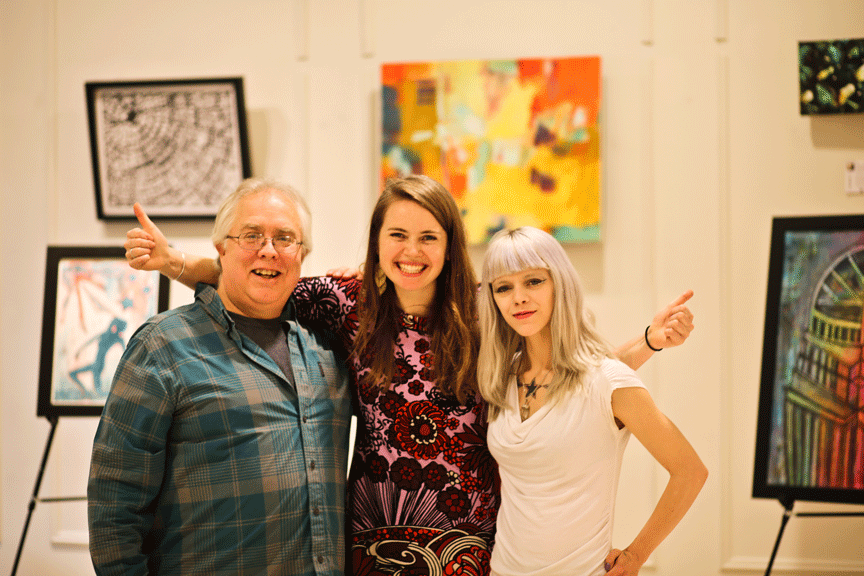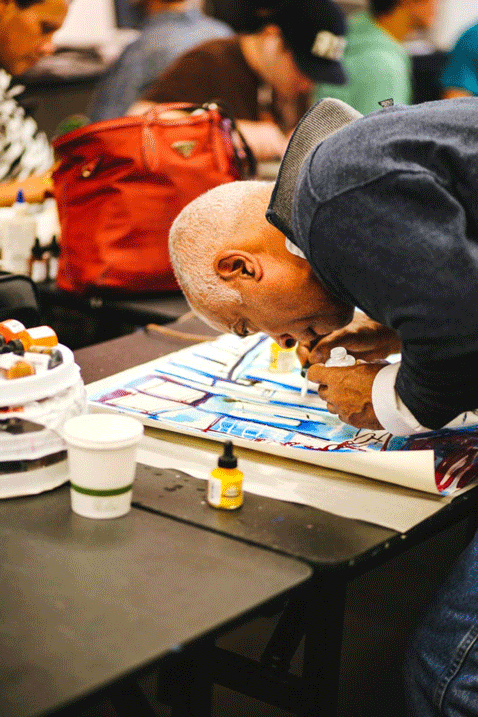The start-up was founded by Liz Powers, an advocate for those experiencing homelessness and for artists with disabilities. This benefit corporation provides an opportunity for underprivileged artists: a platform to make a living by selling their artworks through this online marketplace. Although this isn’t a non-profit, this company has still managed to carve out a niche to further their careers and provide livelihoods to those in need. The company considers itself to be a “business for good.”
Powers had been involved and actively helped in the homeless and disabled communities in Boston as a social worker, where she ran art programs from women’s shelters and disability centres. It was during this time that she realized these artists were creating amazing work but had no way to sell their art. At first, Powers wanted to combat the loneliness she saw in the community. She thought art programs in local shelters might create positive outlets and counter isolation. She found that most shelters that had such programs had closets full of fantastic artworks that weren’t being displayed, much less sold.

These artists wanted to work and wanted avenues to be able to bring positive change into their lives. “When I realized that there was no company similar, I knew that ArtLifting had to be founded,” Powers said. “The infrastructure (art programs in shelters and disability centres) was already in place, and the artists were already creating art. The only thing missing was a marketplace for this art. ArtLifting gives these artists a platform to sell their artwork.”
Their project took off so much faster than they ever could have imagined. In their first week, they helped four of their artists earn a thousand dollars with a flurry of media attention. It started with $4000 in savings and a mission statement, and now the organization has 160 artists on contract and operates in 8 cities with 7 employees and six figures in revenue. All artworks sold on the platform are approved first by a curator and must align with their mission, and the works are purchased by clients all over the globe. The first five artists who were part of this program are no longer homeless, while ten artists have gone on to have their art exhibited in Boston Museums.
According to WideWalls, 75% of art collectors search for artworks online and base their choices on digital images. This project fully takes advantage of the new digital art world.
“My goal is to make their invisible talents visible and by doing so, change stereotypes. Instead of defining people by their circumstance, we should define them by their talent,” Powers stated.

55% of the profits are kept by the artist, while the rest of the profits go to furthering the project and providing art supplies to artists in need. They chose not to become a non-profit since these organizations spend most of their time fundraising.
One of these artists, Scott Benner, who today creates pen and ink drawings, was homeless after becoming unemployed and encountered ArtLifting in a shelter in Quincy. Benner was battling depression and a debilitating illness. He’d been making art his whole life and after selling his work through the ArtLifting platform, Powers arranged a solo gallery show for him which opened doors for him financially and emotionally.
“When I had that show, I had to get special permission from a counsellor at the shelter to stay out beyond 6 p.m.,” he said in an interview with The New York Times. “There I was with people sipping wine, eating cheese and crackers, and talking about art. And an hour after the show was over, I was on the T going back to Quincy, where I had to turn in my wallet and medications, be searched and then go back into the shelter where guys were fighting and puking and passing out. It was surreal to go from one world to the next.”
This isn’t just about the money—ArtLifting is about restoring a sense of hope, personhood, purpose and dignity to its artists. The experience of being homeless takes a huge toll emotionally and mentally. According to the APA, 47% of women experiencing homelessness can be diagnosed with major depressive disorder and the rate of mental illness in this group overall is double that of the general population. Therefore, this project supports the United Nations Sustainable Development Goals for No Poverty and Good Health and Well-Being.
Visit their website to learn more about their project or to purchase works from these wonderful artists.
